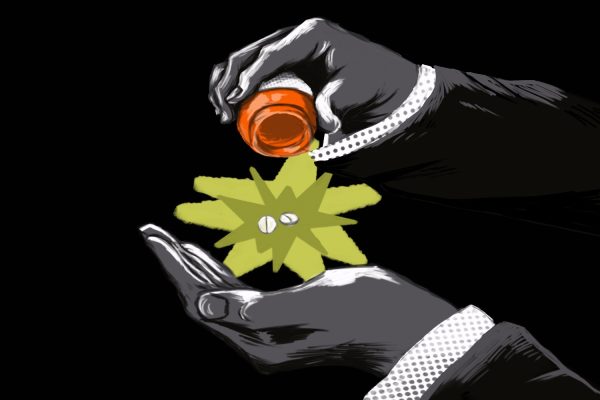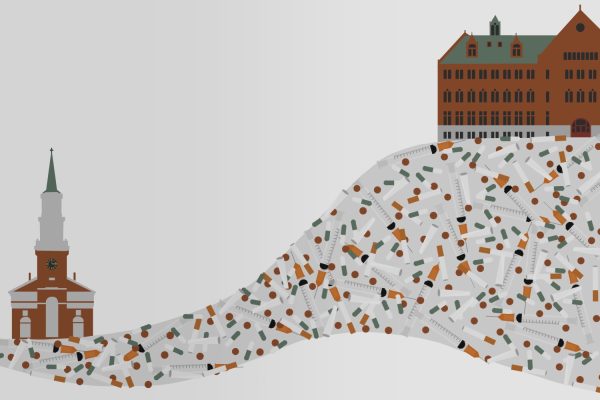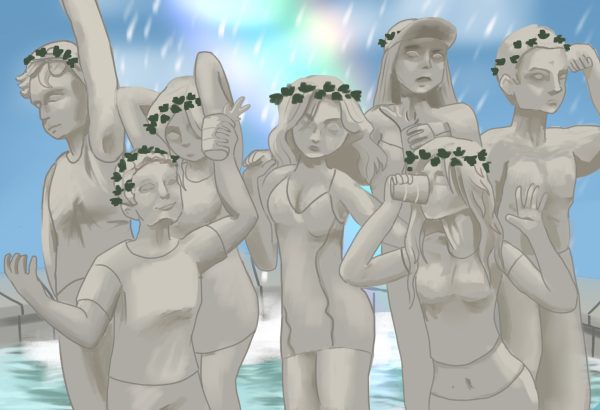To remain divided adds to gun crisis
Recent events across the nation have sparked a heated debate about gun control and how to eliminate gun violence. Shootings in Connecticut, Oregon, Colorado and New York have taken the spotlight and lit the fuse for these debates, yet they represent only a small fraction of the violence guns produce.
Solutions to stop gun violence seem to polarize people, often depending on their political party affiliate. The voice of the popular media will tell you that Republicans love guns, while Democrats want them made illegal. But it isnt that simple when it comes to life and death.
Life and death are two forces that unify people, no matter their age, gender, or social status. Guns have the distinct ability to both protect our lives, as well as destroy them. It would seem, then, that change is necessary in light of recent events and from the history of gun related violence in America.
When I was young, my mother had a button on her brown corduroy jacket that read, Actually, guns do kill people.
I gave little thought to those words, until I encountered the voice of a differing opinion. After church one Sunday a man stopped her, glancing at the button, and said Guns dont kill people, people kill people. My mother nodded her head, smiled to herself, and continued on her way.
Some legislators are currently pushing to enforce stricter regulations and background checks in the purchasing of guns, particularly concerning private sales and gun shows.
Others feel that the answer lies in eliminating high capacity magazines, semi-automatic weapons, and handguns from the market completely, while allowing single-shot rifles for hunting purposes and to respect the right of the second amendment.
Those opposing stricter regulation believe that increasing the difficulty of procuring a weapon will only hurt law abiding citizens, arguing that a criminal does not concern him or herself with laws and regulations.
Actions taken in other developed nations, however, show that increasing regulations can diminish gun related violence. After mass shootings took place in their respective countries, the UK and Australia enacted incredibly strict policies, nearly eliminating gun violence to the point where police officers in Britain do not need to carry guns at all.
With most of the focus going to guns and how to handle them, others look to social constructs as a cause for unnecessary violence. Looking back through the history of mental illness in the United States, the path has gone from institutionalization, to hospitalization, to nothing. Many U.S. citizens with mental illnesses are currently wards of the state without familial support, often living homeless on the streets.
Others advocate for an entire ideological makeover, in which the lifestyle and culture that surround guns is remodeled, with a goal of reducing civilian attacks.
It seems that activists against further violence caused by guns see the problem black or white, e.g., gun regulation, social disorder or lack of support for the mentally ill. Extreme measures are proposed on all sides, yet they fail to be permitted by opposing parties.
Bipartisanship and a holistic view will be imperative to solving this crisis. All answers are in part correct, yet the extremity to which they are taken isolates support and probability for reality.
Only time will tell. The nation will continue to divide support for regulation that has the ability to save thousands of lives a year. Until an agreement is made, the lives of our neighbors, friends and family remain at stake.






